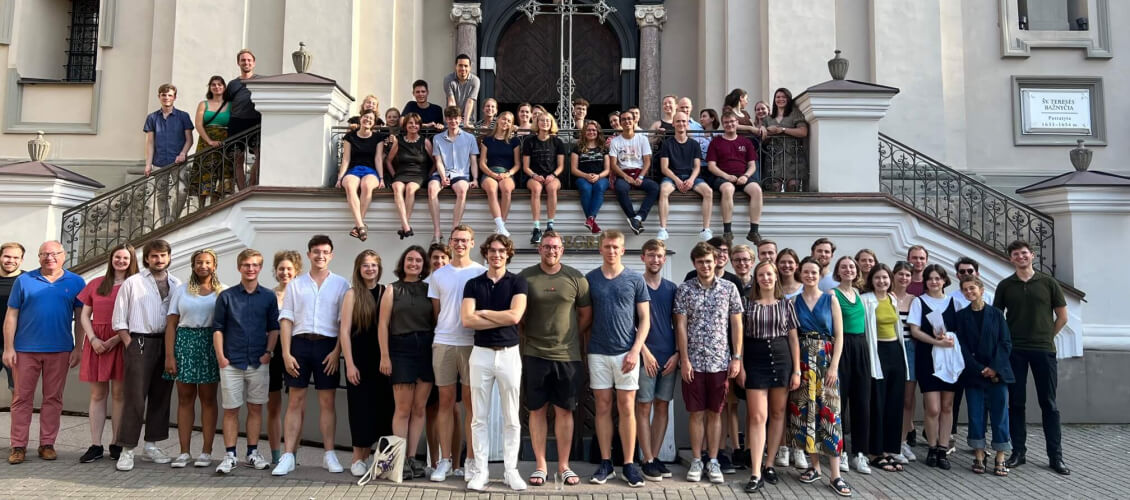The participants hailed from diverse disciplinary backgrounds, spanning fields such as psychology, medicine, law, sociology, history, philosophy, international security studies, mathematics, physics, and engineering. Throughout the academy, students engaged in rigorous intellectual discussions, field trips, film screenings, and meetings with prominent figures from various sectors of society.
The academy organized four distinct working groups, each led by renowned scholars from German, US, and Lithuanian universities and research institutions. Here are some insights into the themes and outcomes of these working groups:
- Empires, Nations, and Federations Across Eastern Europe
Conducted by Prof. Dr. Martin Aust and Dr. Tatiana Khripachenko from the University of Bonn, this working group delved into the historical and contemporary concepts of empires, nations, and federations in Eastern Europe. Focusing on Lithuania, Belarus, Poland, Russia, and Ukraine, participants explored the intricate relationship between nations and empires in both Eastern and Western European contexts. The group discovered that historical interpretations are complex, offering room for intriguing debates and enriching insights.
- Russia’s War in Ukraine and the Return of the West
Led by Prof. Michael C. Kimmage from Catholic University of America and Dr. Liana Fix from the Council on Foreign Relations, this group delved into the multifaceted dimensions of Russia’s war in Ukraine. They examined various aspects of decision-making, highlighting the global implications and the profound impact of this conflict on Europe’s security landscape.
- In the Shadow of the German Occupation
Prof. Felix Ackermann from Fernuni Hagen and Prof. Violeta Davoliūtė from Vilnius University led Working Group 3, which explored Jonava’s history during the German occupation in World War II, with a focus on the tragic Holocaust that decimated the town’s Jewish community. The group considered how this microhistory could be connected to the NATO Enhanced Forward Presence in Rukla, a nearby military base.
- Belarusian Minority in Lithuanian Vilnius
Conducted by Dr. Andrei Vazyanau from the European Humanities University, this group took an anthropological approach to explore Belarusian culture in Vilnius. They met with Belarusian activists and artists, gaining insights into the diverse nature of the Belarusian diaspora in Vilnius and its commitment to preserving Belarusian culture and language.
The Vilnius Summer Academy not only facilitated deep intellectual exploration but also fostered international dialogue and interdisciplinary collaboration. Participants lauded the enriching experience of engaging in scholarly discussions outside their usual areas of study.
Plans are already underway for the next summer academy, with a warm welcome extended to even more students from Vilnius interested in joining the ranks of those committed to interdisciplinary research and international dialogue on contemporary issues.
